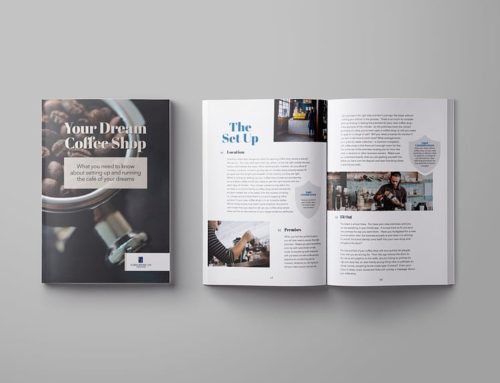 Picture the scene. You have had a dispute with a customer. You have been in Court for two days, sitting on that hard uncomfortable bench. In those two days you have had to listen to the Lawyers argue over just about everything. You have heard your Lawyer describe you in terms fit for a saint, and the opposition Lawyer call you every name under the sun. As if that wasn’t bad enough you have seen the Judge roll his eyes on more than one occasion. All the time you are haemorrhaging money. You ask yourself, how did I get here?
Picture the scene. You have had a dispute with a customer. You have been in Court for two days, sitting on that hard uncomfortable bench. In those two days you have had to listen to the Lawyers argue over just about everything. You have heard your Lawyer describe you in terms fit for a saint, and the opposition Lawyer call you every name under the sun. As if that wasn’t bad enough you have seen the Judge roll his eyes on more than one occasion. All the time you are haemorrhaging money. You ask yourself, how did I get here?
At what point did the disagreement pass the point of no return? At what stage did you allow control of the situation out of your hands and into the control of the bored looking stranger who keeps rolling his eyes?
Please don’t get me wrong. I am not for one minute knocking the judicial system in this Country. Nor am I suggesting that you should at all costs avoid going to Court. What I am pointing out is that there is more than one way to settle any dispute, and if logic dictates (and if it doesn’t then I am sure the recession will) then one should consider starting with the cheapest option. If money isn’t your worry (if so you are in the minority here!) then from a business pint of view I would ask you to consider this. You are knee deep in a dispute with a customer, client, supplier etc. It is now obvious that the two of you are not going to agree and something needs to be done. If that “thing” is Court, then what are the advantages and disadvantages of that decision? Well the advantages are that you might win (although my father used to always say “justice is determined by the state of the judge’s digestion” so having righteousness on your side is unfortunately not a guarantee). The disadvantages are that you might lose. You may lose a lot of money, and from a business point of view, you guarantee that you will never do business with that customer, client or supplier again.
So if not Court, what route? The obvious is of course Mediation. The process where both parties meet in a non binding and without prejudice fashion to see if a solution or middle ground can be agreed to end or compromise the dispute. Now I realise that I have just used some technical phrases. In order to explain the process I now wish to look at the essential ingredients to a mediation.
The Mediator:
The mediator is essentially the referee in the dispute. If you can imagine a boxing referee, they allow the fight to happen. They allow the exchanges but in the event that the fight gets dirty, they are there to break up the brawlers and enforce the rules if necessary.
It is important to understand that the Mediator is not a judge. They are not there to listen to the evidence and make a decision. They are there to “broker the talks” and try and conduct them in a fashion that provides the best possibility of success. They are skilled problem solvers and keepers of the peace. They will not make suggestions or give legal advice. They are there to provide an environment conducive to compromise. After that, it is up to the parties.
The advantage to this process is that you are not giving up autonomy on the ultimate decision. In other words you are not relying on a third party such as a judge to decide the issue. You will be dealing with a trained mediator who understands the process and is best placed to control the environment to ensure that unnecessary aggression or confrontation does not arise (ingredients sure to spoil the chances of settlement).
Non binding process.
The process of mediation is non-binding. In other words you are not bound by what happens or what is said at mediation, unless you reach a compromise and both parties decide to be bound by it. The advantage here is that you can go into the process and if it doesn’t work or yield a compromise satisfactory to you then you can continue on to Court, and the fact that you opted for mediation will certainly not go against you in any way (in fact it may stand to you as we will see below in terms of costs).
Without Prejudice.
“Without prejudice” is a term which means that anything said in mediation cannot be repeated afterwards or used against you. For example, if you concede an issue in mediation and for some reason the matter does not settle and goes to Court, the opposition cannot refer to that concession (or even allude to it) in Court. It is as if you did not say it at all. The advantage to this is that the parties can make concessions in an effort to find agreement without giving up their defence position if the matter goes to Court.
The process is also a more private process than that of Court. For example, it is not held in public and nor is it reported in the newspapers. From a business point of view there is of course a great advantage to this. If you lose in Court it represents bad publicity to your business. If the matter settles in Mediation then no one outside of the parties will know the outcome. Of course there is another great potential advantage from a business point of view and that is, by using the process (and the fact that it is compromise focused and not adversarial) you stand a better chance of keeping a good relationship with your customer, client, supplier etc and thus a good chance of doing business with them again in the future. This has to be positive for any business. Turning a disgruntled client or customer into repeat business is a skill that we could all greatly benefit from!
What if you just don’t want to engage in the process? What if you want maximum publicity for the matter and Court is all you are interested in? Well under law you have recourse to Court if you so wish but be warned. From a costs point of view, if you chose to decline an invitation to attend mediation then, even if you win in Court, the judge may refuse to award you costs on the basis that you so declined. Remember, the Court should be a last port of call. When all other options fail, mediation is quite clearly a viable option and thus by refusing to engage in it you may be leaving yourself open to lose more money than you might think.
It is also important to note that under new Court rules, the Court, through its registrars may refuse to list your case for hearing until you have at least tried mediation. This is not only a reflection on how busy the Court lists are in this Country, but also a clear reflection on the Courts’ belief that the process works.
From my point of view, I have to admit that when I was introduced to the process first I was very sceptical. I saw the whole thing as a “let’s all hold hands and be friends” process (and from a Solicitor’s point of view, and to my shame, I saw it as a loss of money to me. If clients chose not to go to Court and instead settle their disputes this way, then what would that do to my fees?) Well, having been involved in the process for the last 7 years I now realise that it works and works a lot better than I ever gave it credit for. Some of the most aggressive cases coming through our Firm have settled through mediation (despite the fact that I didn’t give some of them the slightest hope).
I have also realised something very important over the years. We are here to serve our business clients and provide them with the best advice possible. In my opinion, advising not to go to mediation can never (and I still haven’t come across a situation where the contrary is true) be good advice, particularly given that the process is without prejudice and your position cannot be compromised as a result.
So the next time you feel that a dispute has got out of hand and third party intervention is needed, give mediation some serious thought. It could save you a lot of time, money, hardship and stress. It might just save you a customer or a friend. If nothing else, what have you got to lose?






